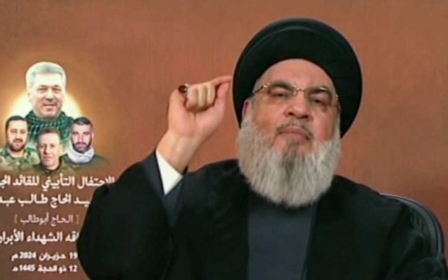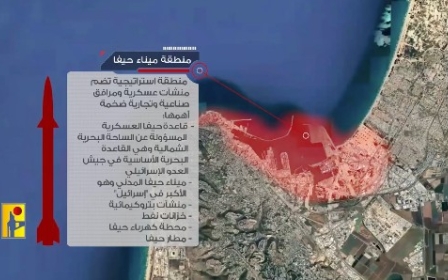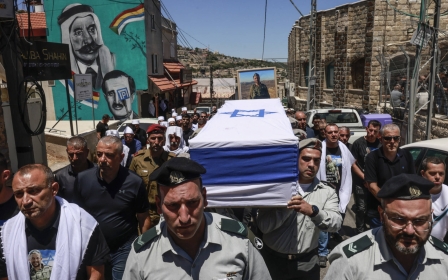Lebanese minister, diplomats visit Beirut airport after claims of storing weapons

A group of Lebanese senior officials, alongside more than a dozen foreign diplomats, visited the Rafik Hariri International Airport in Beirut on Monday, after a major British newspaper published an article alleging that Iranian weapons were being stored there.
Journalists also joined the tour of the airport, where Lebanese officials defended the airport's procedures and said that the reports of weapons storage were false.
"The airport adheres to international standards," said Ali Hamieh, the transport minister who led the visit.
On Sunday, the British newspaper The Telegraph reported that the Lebanese group Hezbollah was storing weapons at the Beirut airport, adding that there was an arrival of "unusually big boxes" that came from Iran.
The newspaper cited airport whistleblowers.
New MEE newsletter: Jerusalem Dispatch
Sign up to get the latest insights and analysis on Israel-Palestine, alongside Turkey Unpacked and other MEE newsletters
Hamieh described the reporting as psychological warfare, adding that it was also an attempt to damage the reputation of the country's only international airport.
The claim made by the British daily comes as cross-border exchanges between Hezbollah and Israel have intensified in recent weeks.

The US has already signalled to Lebanon that it would back Israel if the country were to launch an offensive onto Lebanese territory, with the risk of a potential Israel-Lebanon war having increased since October.
Israel and Hezbollah have exchanged near-daily fire since 8 October in response to Israel launching its war on Gaza, but the conflict escalated after Israel killed Taleb Sami Abdullah, one of Hezbollah's most senior members. In response, Hezbollah launched hundreds of drones and rockets at Israel.
The hostilities have displaced tens of thousands of Lebanese and Israelis living in border areas.
Last week, the Israeli army announced that it had approved plans for an offensive in Lebanon.
The announcement came as Hezbollah broadcast footage from a surveillance drone over the northern Israeli port city of Haifa in an apparent warning to Israel against starting a war.
US Air Force General CQ Brown, who heads the Joint Chiefs of Staff, has cautioned that a Lebanon offensive "can drive up the potential for a broader conflict".
"Hezbollah is more capable than Hamas as far as overall capability, number of rockets and the like. And I would just say I would see Iran be more inclined to provide greater support to Hezbollah," Brown said.
For years, Israel has accused Hezbollah of storing weapons in installations across Lebanon, including at airports. Hezbollah denies these allegations.
The claim from the British newspaper has also raised fears that Israel could use the claim as a pretense to attack the airport. During the 2006 war, Israel bombed Beirut's airport.
Middle East Eye delivers independent and unrivalled coverage and analysis of the Middle East, North Africa and beyond. To learn more about republishing this content and the associated fees, please fill out this form. More about MEE can be found here.




